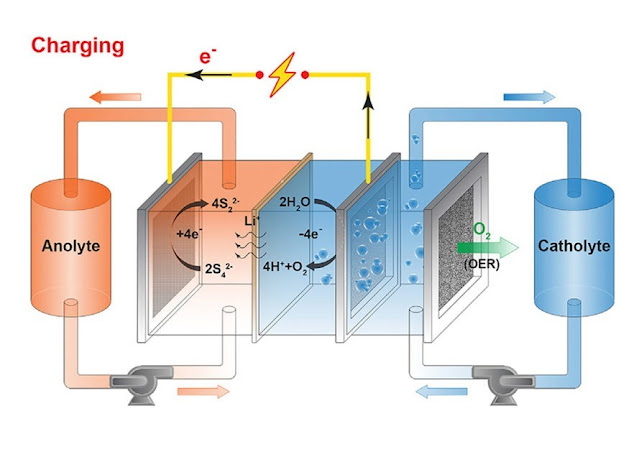The
global heat pump market has been witnessing significant growth over the past
few years on account of various advantages offered by heat pumps such as higher
efficiency than conventional HVAC systems. Heat pumps function on the principle
of the reversal of refrigerant flow and can be used for both heating and
cooling applications. They offer energy savings of up to 300% compared to
electric resistance heating and are more eco-friendly as they result in lower
emissions. Moreover, growing cognizance regarding global warming and climate
change has prompted manufacturers as well as consumers to shift towards more
energy efficient technologies. Air-source heat pumps, which are estimated to
account for over 85% of the global market, have been gaining immense popularity
as they are cheaper to install and do not require water. The increasing demand
for HVAC systems from residential as well as commercial establishments on the
back of rising construction activities is propelling the growth of the heat
pump industry.
The
global heat pump market is estimated to be valued at US$ 12296.96 Mn in 2024 and is expected to exhibit a CAGR of 4.8% over the forecast period 2024 to 2031.
Key Takeaways
Key players operating in the heat pump market are Teva Pharmaceutical
Industries Ltd., Eli Lilly and Company, Johnson & Johnson, Dr. Reddy’s
Laboratories Ltd., Pfizer, Inc., Cipla Inc., Lupin Limited, Averitas Pharma,
Inc., NeuroBo Pharmaceuticals, Inc., LEXICON PHARMACEUTICALS, INC., Asahi Kasei
Corporation, Vertex Pharmaceuticals Incorporated, and Biogen. These players are
focusing on new product developments and launches to consolidate their market
position.
The growing environmental consciousness and stringent emission regulations
across various countries present significant opportunities for manufacturers in
the Heat
Pump Market Size industry. Additionally, rising adoption of green
buildings coupled with incentives provided by governments worldwide for energy
efficient appliances is anticipated to boost demand. Geographically, Asia Pacific led by China dominated the global heat pump market
in 2019 and is likely to remain the key revenue generator during the forecast
period due to the rapid infrastructure growth and industrialization in the
region. Other regions such as Europe and North America are also expected to
register healthy growth on account of favorable policies and initiatives to
curb GHG emissions.
Market Drivers
One of the primary drivers for the heat pump market growth is the
enforcement of stringent emission norms by regulatory bodies worldwide. As heat
pumps have higher energy efficiencies than conventional HVAC systems, they help
reduce emissions substantially. According to recent studies, widespread
deployment of heat pumps can potentially decrease carbon dioxide emissions by
up to 700 million tons per year and provide cumulative fuel cost savings of up
to $600 billion by 2050. Rising awareness among consumers regarding the
financial and environmental benefits of heat pumps in the long-run along with
supportive schemes by governments are propelling their adoption rates
significantly. Furthermore, ongoing technological advancements targeted towards
improving performance and reducing the overall cost of ownership will continue
fostering the market expansion through the forecast period.
PEST Analysis
Political: Heat pump policies and laws regarding greenhouse gas emissions
adopted by governments favor growth in environment-friendly heat pumps.
Regulations mandating minimum efficiency standards for heating equipment also
spur adoption.
Economic: Rising energy costs and incentives for energy efficiency drive
purchases of cost-effective heat pumps. Subsidies and tax credits in some
countries aid the switch from furnaces to heat pumps.
Social: Increasing environmental awareness boosts demand for lower carbon
alternatives like heat pumps. Younger homebuyers prefer energy-efficient HVAC
systems over traditional heating methods.
Technological: Advances in components and control systems improve the
performance and capacities of heat pumps. New designs expand applications to
larger spaces and colder climates. Dual fuel and variable capacity units
provide flexibility.
Geographically, North America and Europe represent the largest regional markets
for heat pumps currently in terms of value. This is due to higher adoption
rates in developed nations with stricter energy standards and growing concerns
over carbon emissions. Governments in these regions offer generous incentive
programs as well to promote heat pump installations.
The Asia Pacific region is poised to be the fastest expanding heat pump market
during the forecast period. Rapid urbanization and infrastructure development
paired with rising disposable incomes increase the demand for heating
equipment. Supportive initiatives to develop green buildings and renewable
energy provide tailwinds for heat pump sales across countries such as China,
India and Japan.
Explore
More Articles- Wildlife
Hunting Tourism Market




Comments
Post a Comment